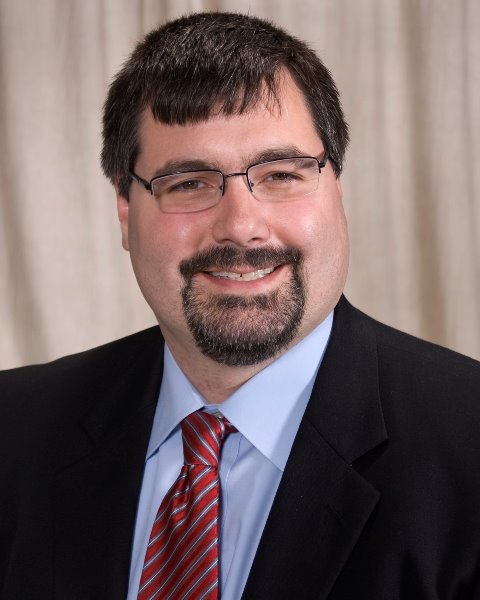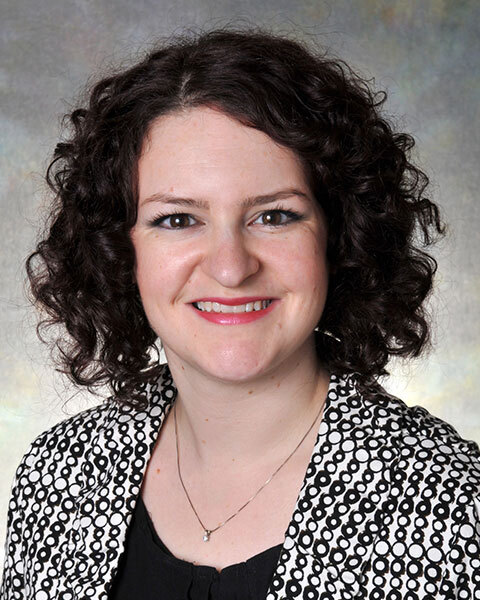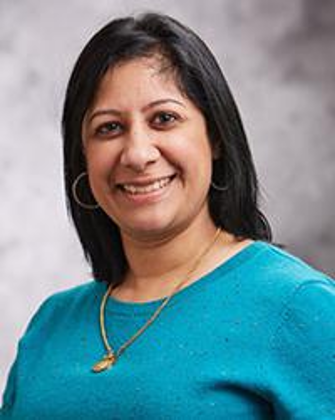
Toxicology Topics: Drug Levels for Buprenorphine: Efficacy, Diversion, and Compliance
-
Register
- Non-Member - $39
- Regular Member - $29
- Retired - $29
- Early Career Physician - $29
- Resident - $19
- Student - $19
- Associate - $19
- ASAM Staff - Free!
- International Member - $29
- Emeritus Member - $29
- Provisional Member - $29
- Fellow Member - $29
- Honorary Member - $29
- CRT Member - $29

Toxicology Topics: Drug Levels for Buprenorphine: Efficacy, Diversion, and Compliance
Recorded: Thursday, March 31, 2022 - Sunday, April 3, 2022
On-Demand Session
Overview
This 1-hour, on-demand session from the ASAM 53rd Annual Conference discusses different buprenorphine and naloxone tests, the interpretation of results, impact on patient management, and review the available literature in this area.
This session will address toxicology topics through a combined, interactive, case-based and didactic session led by a panel of medical toxicology and addiction medicine expert faculty. Different buprenorphine and naloxone tests, the interpretation of results, impact on patient management, and available literature in this area will be reviewed and discussed.
The target audience for this Introductory level session includes physicians, nurse practitioners, physician assistants, other clinicians, researchers, residents, fellows, students, and counselors.
This session addresses the following ACGME Competencies: Patient Care and Procedural Skills, Medical Knowledge, Practice-based Learning and Improvement, System Based Practice.
Learning Objectives
Upon completion, learners will be able to:
- Describe the different types of oral and urine testing profiles available for buprenorphine, including utility, accuracy, cost, and limitations for each test and administration modality (e.g., remote oral testing).
- Identify the aspects of the pharmacodynamics and pharmacokinetics of buprenorphine, metabolites, and naloxone and how they relate to quantitative laboratory analysis.
- Describe the use of buprenorphine and metabolite levels, creatinine normalized metabolite levels, and use of metabolite ratios to guide clinical management of patients receiving buprenorphine for opioid use disorder.
Registration Rates
| Rate Description | Rate |
| ASAM Member | $29 |
| Non-Member | $39 |
| Associate Member | $19 |
| Resident Member* | $19 |
| Student Member* | $19 |
*Residents, Fellows-in-training, Interns, and Students must join ASAM to receive a discounted registration rate. Click here to become an ASAM member. National and Chapter membership dues apply. There is no charge for Students to become a Member, but verification of student status is required.
Membership Question? Call ASAM at 1.301.656.3920, email us, or view the ASAM website for more information.
Refunds & Cancellations
All ASAM e-Learning Center refund requests must be made in writing to education@asam.org within 90 days of purchase. Those requesting refunds for courses that are in progress will receive partial refunds or e-Learning Center credit. Automatic full refunds will be made for any course with a live-course component that has been cancelled.
Registration Deadline: 05/01/2025
Course Instructions
- Click on the Contents tab to watch the on-demand recording.
- Click Complete Post Test to answer multiple choice questions. Participants will have 10 attempts to pass and must answer 2 out of 3 questions correctly.
- Click Complete Evaluation to provide valuable activity feedback. Scroll down on all questions as there may be answer options that expand past the size of the window.
- Click the button Claim Medical Credits in the box titled Claim Credits & Certificate. Choose the type of credit and click submit. Click the button View/Print Certificate to save or print your certificate. You can view/print your certificate at any time by visiting the ASAM eLearning Center, clicking Dashboard, and clicking Transcript/Achievements.
Need Assistance?
For assistance logging in, accessing activities, claiming credit, or for other questions or concerns, please check the FAQ page or e-mail Education@ASAM.org
ASAM is proud to offer Essential Accessibility to ensure our website is accessible and functional for all our learners while providing free assistive technology for people with the widest possible range of abilities.

Timothy Wiegard
MD
Dr. Wiegand holds board certification in internal medicine, medical toxicology and clinical pharmacology. He completed his Postgraduate Fellowships in Medical Toxicology and Clinical Pharmacology at the University of California, San Francisco in 2006. His current position is as the Director of Toxicology at the University of Rochester Medical Center in Rochester, New York where he holds an appointment in Emergency Medicine as Associate Clinical Professor of Emergency Medicine at Strong Memorial Hospital and Highland Hospital. In addition to his positions at the University of Rochester Dr. Wiegand Directs the Toxicology Consult Service at Strong Memorial and Highland Hospitals, serves as Medical Director of Huther-Doyle Chemical Dependency treatment program in Rochester, NY, and treats acute alcohol and opioid withdrawal at the Syracuse Behavioral Health (SBH) Rochester detoxification facility. He is also faculty for the SUNY Upstate Medical Toxicology Fellowship training program and serves as on-call toxicologist for the SUNY Upstate Poison Center. Dr. Wiegand directs a clinical rotation in medical toxicology for the Strong Memorial Hospital Emergency Medicine residency program and is involved in toxicology, pharmacology and addiction medicine education for fellows, residents, and students in pharmacy and medicine. His interests include the treatment of acute intoxication and treatment of alcohol, opioid and other drug withdrawal syndromes and in the treatment and prevention of addiction and dependence. He has been treating opioid dependence since 2005 as an SAMHSA-waived OBOT provider. Dr. Wiegand has published in the areas of acute intoxication, withdrawal and treatment and prevention of drug overdose and in medical education in toxicology and emergency medicine and in the development, billing and reimbursement related to clinical toxicology practice. He is a section editor for the Encyclopedia of Toxicology, 3rd edition and has published numerous journal articles and textbook chapters on toxicology and related topics. Dr. Wiegand won the 2013 American Society of Addiction Medicine (ASAM) Annual MedSci research award for best abstract for research involving addiction medicine education during medical toxicology fellowship training. Dr. Wiegand is the Chair for the American College of Medical Toxicology (ACMT) Addiction Medicine section and he was appointed to the New York chapter of the American Society of Addiction Medicine (NYSAM) Board of Governors as Communication Committee Chair and Board Member in 2013. He has been increasingly active in ASAM and in his state chapter, NYSAM, since 2011.

JoAn Laes
MD
JoAn Laes, MD is an addiction medicine physician and consulting medical toxicologist. Her focus is inpatient addiction medicine and toxicology consultation, and outpatient treatment of opioid and other substance use disorders. She is an owner at Twin Cities Toxicology, providing consultation, medical directorship, and expert opinion in the fields of addiction medicine and medical toxicology. She is board-certified in Internal Medicine, Addiction Medicine, and Medical Toxicology. She completed an internal medicine residency at Hennepin County Medical Center and medical toxicology fellowship at Regions Hospital in St. Paul, Minnesota. She has spoken nationally on the subjects of addiction medicine and toxicology.
No relevant financial relationships
.jpg)
Hiroko Furo
MD, PhD, MA, MS
Dr. Hiroko Furo was born in Japan and is a graduate of Kagawa University, Japan. She received her Ph.D. in Sociolinguistics from Georgetown University in Washington DC, and her medical degree at the University of Illinois at Chicago. She completed her residency training in occupational medicine at the University of Texas at Health NorthEast. She is board certified in addiction medicine and occupational medicine. She is also board eligible for Clinical Informatics and Life Style Medicine.
Dr. Furo is a clinical assistant professor in addiction medicine at the University of Texas Health at San Antonio. Her research interests in addiction medicine are research informatics, computational linguistics and population health.
No relevant financial disclosures.

Soumya Pandalai
MD, FACP, DFASAM
Dr. Soumya L. Pandalai is a board certified physician in the field of Internal Medicine and Addiction Medicine. She currently works at Banner University Medical Center Phoenix (BUMCP) in Phoenix, Arizona as a specialist in Addiction Medicine and provides both inpatient consultation services and outpatient treatmentr to persons with Substance Use Disorders (SUDs). Dr. Pandalai enjoys the clinical practice of Addiction Medicine and finds the neuroscience of addiction to be intellectually stimulating and challenging to observe the health-effects that can result from various aspects of human behavior. It is also immensely rewarding to connect with patients at different stages of their recovery process and help them along their path toward healing. She hopes to inspire people to view addiction from a different lens and apply principles of substance use and reward pathways to general aspects of human motivation and other medical illnesses. Dr. Pandalai is proud and grateful to work with an interdisciplinary team of hospital staff, social workers, counselors and other medical providers to create a more inclusive and health-focused model for substance use treatment, chronic pain and use of treatment options like tele-health to advance the care of vulnerable patient populations.
No relevant financial disclosures.
CME, CE, CEU and Other Credit Types

ACCME Accreditation Statement
The American Society of Addiction Medicine is accredited by the Accreditation Council for Continuing Medical Education (ACCME) to provide continuing medical education for physicians.
AMA Credit Designation Statement
The American Society of Addiction Medicine designates this enduring material for a maximum of 1 AMA PRA Category 1 Credits™. Physicians should claim only the credit commensurate with the extent of their participation in the activity.
NAADAC, the Association for Addiction Professionals
This activity has been approved by the American Society of Addiction Medicine, as a NAADAC Approved Education Provider, for educational credits. NAADAC Provider #295, ASAM is responsible for all aspects of the programming.
California Association for Drug/Alcohol Educators (CAADE)
This educational program is approved by CAADE: #CP40 999 1222.
California Association of DUI Treatment Centers (CADTP)
This educational program is approved by CADTP: #205.
California Consortium of Addiction Programs and Professionals (CCAPP)
This educational program is approved by CCAPP: #OS-20-330-1222.
Continuing Education Credits (CEUs)
Non-physician participants will receive a certificate of attendance upon completion of the activity and an online evaluation confirming their participation. Participants should submit his/her certificate of attendance to their professional organization/institute.
Maintenance of Certification (MOC) or Continuing Certification Programs (CCP)
American Board of Medical Specialties (ABMS)
Through the American Board of Medical Specialties (“ABMS”) ongoing commitment to increase access to practice relevant Continuing Certification Activities through the ABMS Continuing Certification Directory, The ASAM 53rd Annual Conference has met the requirements as a MOC Part II CME Activity (apply toward general CME requirement) for the following ABMS Member Boards: Allergy and Immunology, Anesthesiology, Colon and Rectal Surgery, Family Medicine, Medical Genetics and Genomics, Nuclear Medicine, Physical Medicine and Rehabilitation, Plastic Surgery, Preventive Medicine, Psychiatry and Neurology, Radiology, Thoracic Surgery, Urology
American Board of Preventive Medicine (ABPM)
The American Board of Preventive Medicine (ABPM) has approved this activity for a maximum of 1 credit towards ABPM MOC Part II requirements.
American Board of Anesthesiology (ABA)
This activity contributes to the CME component of the American Board of Anesthesiology’s redesigned Maintenance of Certification in Anesthesiology TM (MOCA®) program, known as MOCA 2.0®.
American Board of Pediatrics (ABP)
Successful completion of this CME activity, which includes participation in the activity, with individual assessments of the participant and feedback to the participant, enables the participant to earn a maximum of 1 MOC point in the American Board of Pediatrics’ (ABP) Maintenance of Certification (MOC) program. It is the CME activity provider’s responsibility to submit participant completion information to ACCME for the purpose of granting ABP MOC credit.
American Board of Internal Medicine (ABIM)
Successful completion of this CME activity, which includes participation in the evaluation component, enables the participant to earn up to 1 Medical Knowledge MOC point in the American Board of Internal Medicine’s (ABIM) Maintenance of Certification (MOC) program. Participants will earn MOC points equivalent to the amount of CME credits claimed for the activity. It is the CME activity provider’s responsibility to submit participant completion information to ACCME for the purpose of granting ABIM MOC credits.
American Board of Surgery (ABS)
Successful completion of this CME activity, which includes participation in the evaluation component, enables the learner to earn credit toward the CME and/or Self-Assessment requirements of the American Board of Surgery’s Continuous Certification program. It is the CME activity provider's responsibility to submit learner completion information to ACCME for the purpose of granting ABS credit.
American Board of Psychiatry and Neurology (ABPN)
Successful completion of this CME activity can be used to satisfy the American Board of Psychiatry and Neurology’s (ABPN) CME requirement for Maintenance of Certification program.
American Board of Addiction Medicine (ABAM)
Successful completion of this activity can be used to satisfy the American Board of Addiction Medicine (ABAM) Tmoc credit requirements.
Royal College of Physicians and Surgeons of Canada (RCPSC)
Royal College Fellows can use participation in Accredited Continuing Medical Education to earn Section 3 Credits.
Disclosure Information
In accordance with disclosure policies of ASAM and the ACCME, the effort is made to ensure balance, independence, objectivity, and scientific rigor in all CME activities. These policies include mitigating all possible relevant financial relationships with ineligible companies for the Planning Committees and Presenters. All activity Planning Committee members and Faculty have disclosed relevant financial relationship information. The ASAM CME Committee has reviewed these disclosures and determined that the relationships are not inappropriate in the context of their respective presentations and are not inconsistent with the educational goals and integrity of the activity.

